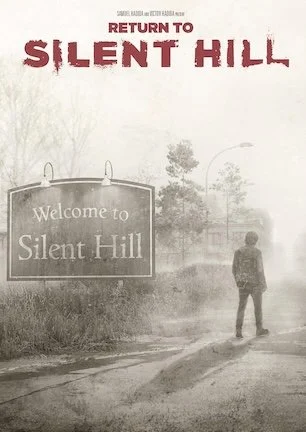Studio: A24
Director: Rose Glass
Writer: Rose Glass
Producer: Oliver Kassman, Andrea Cornwell
Stars: Morfydd Clark, Jennifer Ehle, Lily Frazer, Lily Knight, Marcus Hutton, Turlough Convery, Rosie Sansom
Review Score:
Summary:
Dangerously deluded by her faith, a devoutly religious nurse becomes a private caregiver to a woman whose soul she feels fated to save.
Review:
“Saint Maud” was a long time coming. The movie began amassing praise in 2019, when early word out of TIFF and Fantastic Fest had it that “Saint Maud” might be horror’s next indie sensation. Fangoria kept the snowball rolling with a cover story timed to coincide with a marketing ramp-up for the film’s Spring 2020 premiere. Around that same time, press screenings rolled out for critics as part of a PR push to get the hype train up to full speed.
Then came COVID-19. On its earth-scorching rampage through Hollywood, coronavirus repeatedly laughed while “Saint Maud” played a futile game of musical release dates. April. No, July. You know what, let’s pull it indefinitely. Except in the UK. They can have it in theaters in October, and on home video in February. The US? Let’s do theaters in January, then VOD and Epix in February. Maybe physical media a month or three later?
While distributor chickens ran around with their heads cut off, and outlets sat on reviews that now had embargos with no end dates, fright filmdom mostly moved on. Confusion replaced anticipation. Having lost track of the movie during the year after his press screening, one reviewer remarked he honestly thought “Saint Maud” already came out. He wasn’t really paying attention. Not many people were anymore. S ome media folks still made occasional comments, but average fans came to care less about a movie they had no ability to see anytime soon.
Equal access to “Saint Maud” finally arrived in early 2021. Nothing short of the best thing since sliced bread could possibly live up to a year and a half worth of noise with nearly nothing to show for it. So how would “Saint Maud” weather that storm? Did exhausting buzz merely fuel burnout or did the movie make good on what bowled-over critics promised?
I could use telltale terms to categorize “Saint Maud.” I could call it a slow burn, adding that it’s heavy on arthouse atmosphere and interpretive ambiguity. More of a character study than a narrative story. I could be more specific, citing symbolic shots such as a close-up slowly panning across bubbling soup possibly meant to reflect blood, or star Morfydd Clark staring ponderously at a cockroach crawling on the ceiling. I could tell you about the movie’s philosophical narration, endless sea of depressingly drooped faces, and lengthy stretches of inconsequential establishing imagery set to silence.
Or I could just point out that “Saint Maud” comes from A24 and let that boutique label’s reputation do the heavy lifting. Filmgoers have strong opinions, both positive and negative, about A24. The one thing those opinions have in common is that everyone who has seen one before knows exactly what they’re getting with an A24 title. As someone constantly looking for ways to cut down my verbosity (which I say unironically after a four-paragraph introduction of negligible critical value), I appreciate that I can simply say, “It’s an A24 film” and rest assured that this fact tells you everything you need to know about the reaction you’ll probably have.
“Saint Maud” ticks all of the A24 boxes. See above for reference. Atmospheric. Interpretive. Ambiguous. Slow burn. I imagine there was a river of drool in the theater row where A24 buyers sat during the film’s festival debut. “Holy sh*t,” they must have thought. “Did writer/director Rose Glass make this movie specifically for us?”
“Saint Maud” follows Maud, a nurse who has invested heavily in her newfound Christian faith as a means of coping with deep emotional issues. Maud’s recent trouble stems from a man who died in her care. It may have been a routine case of CPR failing to resuscitate him rather than negligence. Yet there’s also a hint that Maud may be an ‘Angel of Mercy’ when it comes to terminally ill patients, because she sees herself as a savior personally sent to perform God’s mysterious will.
Maud uses religion to refashion her identity. She also uses an assumed name since she was previously called Katie. For the time being, she’s hoping to go unnoticed by taking an in-home caregiver job in a seaside village. Maud’s new ward is Amanda, once a renowned dancer and choreographer, now a housebound woman clinging hopelessly to her hedonistic past.
Maud thinks Christianity can reform Amanda like it did her. Amanda doesn’t personally speak to God like Maud believes she can. Nor does Amanda have the same vomit-inducing convulsions that sometimes lead to levitation. Nonetheless, Maud makes it her mission to cleanse Amanda’s soul. Maud isn’t sure what exactly that entails. But she’s confident God’s guidance will show her the way. The thing is, what if God is merely a deluded manifestation of her mind, or something more sinister than that?
“Saint Maud’s” theatrical poster loads up on lofty acclaim. A blurb from Collider contends “Saint Maud shakes you to your core.” Variety calls it “an unholy terror of brilliant, blood-freezing intensity.” Esquire’s effusive label is “a mesmerizing horror masterpiece.”
Out of all of those pull quotes, the only word I agree with is “horror.” When we fan away the blown smoke that’s only one bit of hyperbole away from hailing “Saint Maud” as the cure for cancer, the naked reality is that “Saint Maud” is just another psychological thriller, and it’s a pretty ordinary one at that.
You might hear about a “shock” ending. That’s overblown too. “What’s the fuss about?” moviegoers are more likely to snicker at a certain winged suggestion than they are to be surprised by a sudden spurt of violence.
“Saint Maud” certainly has a subtle style. Whether it’s Maud’s humble home or Amanda’s comparatively posh digs, sets tell the stories of the main players’ personalities. A confident camera isn’t afraid to turn upside-down in another effort intended to reflect Maud’s mental tilting. The movie also seems to have something to say about religion, self-worth, and homicidal/suicidal ideations, even though I’m unconvinced anyone knows for sure precisely what “Saint Maud’s” positions are on those subjects.
Back to basics, “Saint Maud” truly is the epitome of A24 aesthetics. “Saint Maud’s” smolder isn’t hot enough to fulfill the exaggerated exclamations of its ardent supporters. In the long run, it only holds enough interest to occupy a middle rung on A24’s ladder. At 80 minutes, “Saint Maud” doesn’t pose much danger of outstaying even a limited welcome. Luckily it’ll only take 30 seconds to know whether you want to be in or out, as the A24 logo once again reveals everything essential about this movie.
Review Score: 50






While the 110-minute runtime could use a trim to maintain more energy, “Redux Redux” is an easy recommend for anyone who enjoys low-key sci-fi.